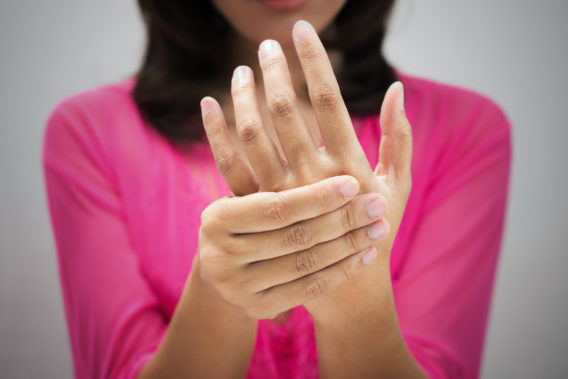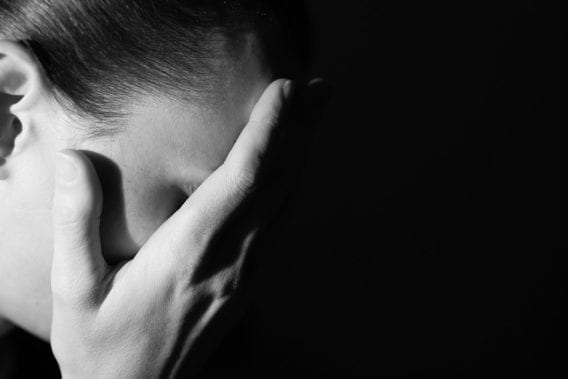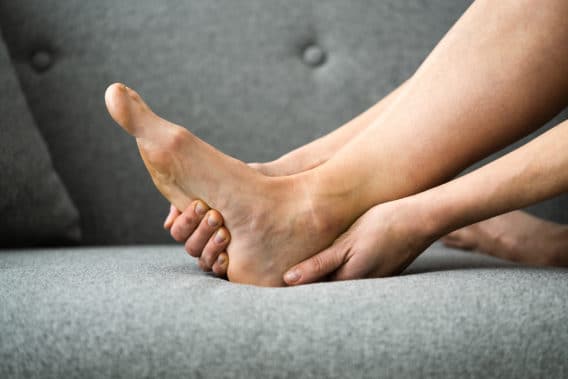
Let’s Talk About Anxiety
We asked our biochemist for the lowdown on anxiety and why it’s such a prevalent ‘thing’ during the meno years. With the advent of COVID-19 many of us will be

We asked our biochemist for the lowdown on anxiety and why it’s such a prevalent ‘thing’ during the meno years. With the advent of COVID-19 many of us will be

Hair loss. It can be one of the distressing things about the menopause journey. Even if it doesn’t shed it often loses its lustrous, glossy volume. We’re sorry to be the

If you’ve been noticing changes ‘down there’ (hello va-jay-jay!) and a distinct disinterest in sex you’re not alone. It’s just that no one talks about it. So let’s go there,

Have you noticed a rash occurring on your skin lately? This subject came up in our community recently. Although, it’s not one of the more common signs of peri/menopause and we

One of the most annoying and lesser-known signs of the menopause years is itchy skin. It’s so frustrating. Often you might put itchy skin down to dryness (which is true

Rage? Yep, it’s a menopausal ‘thing’ and usually occurs during perimenopause. Or, maybe you’re suffering from anger? That’s also a peri/menopausal ‘thing’. This is one of the thornier aspects of

Paresthesia, have you heard of it? It’s also referred to as tingling extremities, which, while it’s not one of the more common signs of peri and post- menopause can deliver

Do you have tender, sore, painful and/or lumpy breasts? Chances are if you’re peri/menopausal you could be experiencing something like this. It’s a very, very common sign so know you’re

Yes, We’re Going To Talk About It This question came from one of our meno ladies so we’re addressing it right here, right now because one of the (several) things

Oral health. Did you know that gum disease is one of the 34 most common signs of the meno years? Just as the fluctuating hormones of pregnancy can send us

Vaginal dryness. It’s not something you want to talk about. It’s a little bit like incontinence, it’s a not-something-we-talk-about thing. But, it’s OK, you can read about it in private

Are you befuddled by brain fog? We know the feeling! Never fear, we got our intrepid biochemist on the case. So without further ado here’s what brain fog is, why

Burning Mouth Syndrome (BMS) is one of the unpleasant signs of the menopausal years. It affects around seven per cent of the population (American figure, but according to the info

Headaches. They’re a headache aren’t they? My humble apologies for the corny joke 😉. I know headaches are no laughing matter and I also know a lot of you are experiencing them

A Cup Of Joe. Supping on a regular cup of joe has become a bit of a movement over the last few years. Go back a couple of decades and

Happiness. Stop and think about it for a moment. Are you happy? It seems like a fairly inane question, doesn’t it? But have you thought about it lately? The reason

Joint pain is one of the common issues women face as they move through mid-life. Some have even used the term ‘menopause arthritis’ to describe this sign because it can

Menopause plays havoc with your sleep. Like you didn’t already know, right? Most menopausal women have known menopause and sleep can have a fractious relationship for a while. And if

Reframing menopause. It can be difficult to view menopause as a positive time when it’s such a negative sounding word. Somehow, the “pause” part suggests an end to something great.
At MenoMe®, Menopause is our one & only game™. We live and breathe it – ’cause we’re going through it too or we’ve gone through it, and we totally get it! We’ve got your back and we promise to add a sprinkle of laughter to this rollercoaster ride!
Meno-Me Ltd
Unit 3/10 Makowhai Road,
R.D. 12, Hawera,
New Zealand.
Free call: 0508 MenoMe
Email: info@meno-me.com
Contact us here…
MenoMe®, LotsaLocks®, Merry Peri®, Perky Post®, Happy Go Tummy®, Women on Fire® and Mini Pause® are registered trademarks owned by Meno-Me Limited. Menopause is our one & only game™ are trademarks of Meno-Me Limited.
affron® is a registered trademark of Pharmactive Biotech Product, S.L.U.
keraGEN-IV® is a registered trademark of Keraplast Manufacturing.
Livaux® is a registered trademark of Anagenix IP Limited.
This is the time when menstruation is well and truly over, the ovaries have stopped producing high levels of sex hormones and for many ladies, perimenopause symptoms subside.
Estrogen has protective qualities and the diminished levels mean organs such as your brain, heart and bones become more vulnerable. It’s also a key lubricant so your lips may become drier, your joints less supple and your vagina might be drier. In addition, your thyroid, digestion, insulin, cortisol and weight may alter.
At this juncture, a woman might experience an increase in the signs of reduced estrogen but she should have a decrease of perimenopause symptoms. That said, some women will experience symptoms like hot flushes for years or even the rest of their lives.
Peri = ‘near’
Most females begin to experience the symptoms of perimenopause in their mid-forties. Your progesterone levels decline from your mid-30s but it’s generally from around 40 that the rest of your sex hormones begin to follow suit.
Perimenopause is a different experience for every woman and some women may barely notice it. The first indicators are usually changes to the monthly cycle. This means that for some ladies, this can be accompanied by things like sore breasts, mood swings, weight gain around the belly, and fatigue as time goes on.
For those with symptoms it can be a challenging time physically, mentally and emotionally.
Importantly, perimenopause lasts – on average – four to 10 years. The transition is usually a gradual process and many women enter perimenopause without realising.